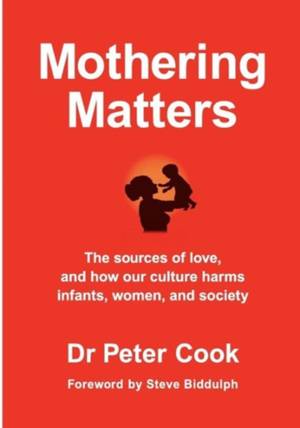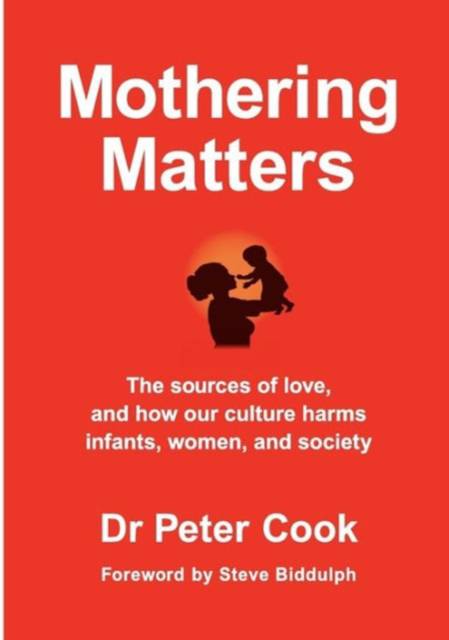
- Retrait gratuit dans votre magasin Club
- 7.000.000 titres dans notre catalogue
- Payer en toute sécurité
- Toujours un magasin près de chez vous
- Retrait gratuit dans votre magasin Club
- 7.000.0000 titres dans notre catalogue
- Payer en toute sécurité
- Toujours un magasin près de chez vous
Mothering Matters
The Sources of Love, and How Our Culture Harms Infants, Women, and Society
Peter Cook
Livre broché | Anglais
20,95 €
+ 41 points
Description
Dr Cook has worked and published extensively in the field of child and family mental health. He is the author of Early Childcare: Infants and Nations at Risk. In Mothering Matters he has created something of great value, summarising much research, making it accessible to those who wish to know more, as he draws on over half a century of thinking and learning about human infants and their mothers and fathers. "At the beginning of this new millennium, Peter Cook presents much evidence that there is a natural, 'best fit' pattern of human mothering. He also asks his readers to consider some ways in which significant departures from this pattern can harm infants, women, and society, and contribute to emotional, behavioural, and health problems. An increase in conduct disorders and aggression in young people, and changes in societal behaviour, have been the shared experience of many professionals dealing with such problems. A mother has a relationship with her child which no one else can share. At birth the total growth of the child's body and brain has been the result of environment supplied by the mother. The rapid growth of the brain and body of the infant, and the acquisition of communication skills, are also largely the result of the intimate interactions of mother and child. Fathers play an increasingly significant part in the infant's life, with the expanding ability of the child to communicate and learn through new experiences, usually mediated through play with the father and other family members in a safe and supportive environment. "I urge everyone with a social conscience to heed Peter Cook's sage words about early childhood. Failure to do so can only result in further damage to the young and the fabric of our society." - Forrester Cockburn, Emeritus Professor of Child Health, University of Glasgow, Scotland
Spécifications
Parties prenantes
- Auteur(s) :
- Editeur:
Contenu
- Nombre de pages :
- 216
- Langue:
- Anglais
Caractéristiques
- EAN:
- 9780977569939
- Date de parution :
- 29-04-11
- Format:
- Livre broché
- Format numérique:
- Trade paperback (VS)
- Dimensions :
- 148 mm x 210 mm
- Poids :
- 263 g

Les avis
Nous publions uniquement les avis qui respectent les conditions requises. Consultez nos conditions pour les avis.






